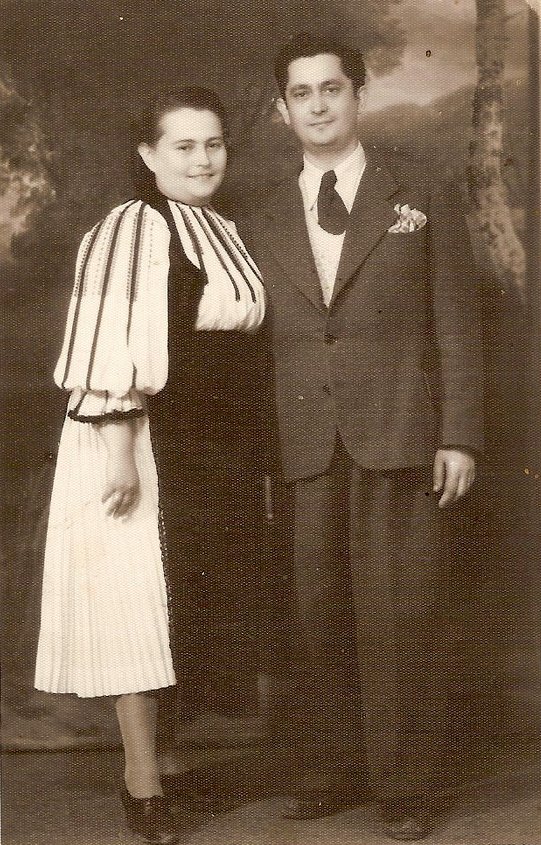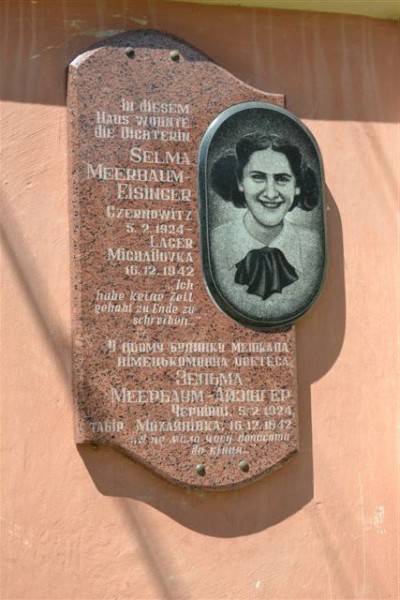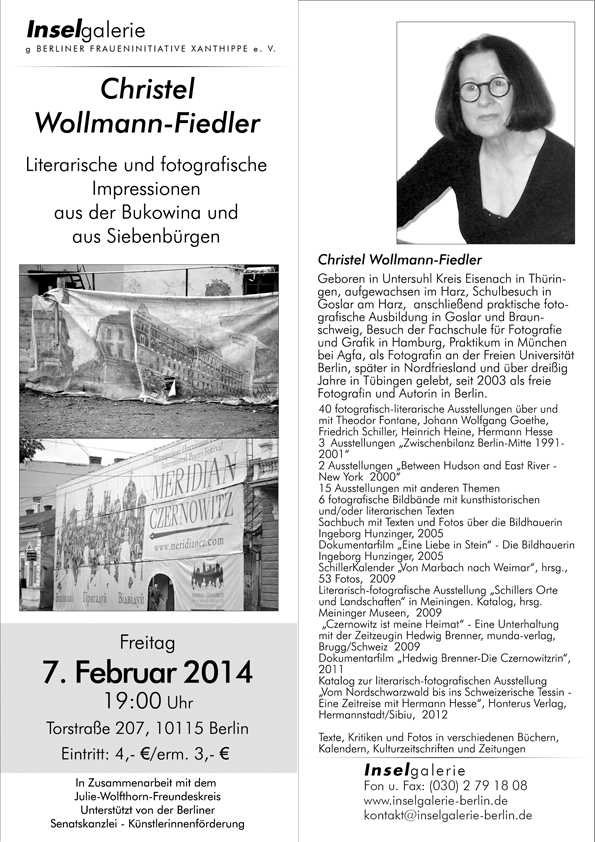From Ruth Glasberg Gold
The writer, Ms. Edith (Ditta) Pomeranz was a volunteer at the Bershad orphanage during the war. The poem is in German — it is so difficult to translate a poem, but I do hope someone will attempt it for those who cannot read German…
Ruth
Meinen Kindern aus dem Berschader Kinderheim
Ihr Kinder vom Orfelinat
Die ich so tief ins Herz geschlossen
Für die, seit ich gewesen in Berschad
So viele Tränen hab vergossen.
Euch schreib ich ein’ge Zeilen heut
In Liebe und mit Zärtlichkeit.
Wer weiß, wohin der Schicksal Euch zerstreut
Und ob zu Ende ist schon Euer Leid.
Ihr Kinder, meine teuren, lieben
Habet vergessen gar am Ende, die
Die Euch gelehrt, für Euch geschrieben
Lieder, Stücke und wohl manche Poesie.
Henny Granierer, Du mein Sorgenkind
Die Du so schön gesprochen hast und klug,
Behandelt endlich Dich das Schicksal lind
Gelitten hast Du wirklich schon genug.
Milu und Leibale, Ihr Künstlerpaar
So talentiert und noch so klein
Vielleicht werdet Ihr mal nach Tag und Jahr
Wirklich mal große Künstler sein.
Hawale Buchman Zigeunerin kleine
Geruht haben Deine Hände nie.
So fleißig wie Du, war wirklich mehr keine
Du scheutest niemals vor Arbeit und Müh.
Pyragowski Willi, der Klasse Stern
Besuchst vielleicht heute die Schule nicht mehr
Daß Du – wie würde ich’s hören so gern –
Deine Lehrer auch heute begeisterst so sehr.
Auch möchte ich wissen, ob Du noch vereint
Mit Joszy Faust, unsern Langen,
Ob er auch heute noch Dein Freund
Weil Ihr einander so eng habt gehangen.
Im Geiste hör ich Dich, Mizzi Weistal,
Du singst so traurig, immer wieder.
Sag, liebe, kleine Nachtigall,
Singst Du noch jene traurigen Lieder?
Rossy Schermann, goldblondes Mädl,
Auch Du hast mir oftmals Freude gebracht,
Du hattest wohl einen holzigen Schädl
Doch hast Du dann alles besser gemacht.
Sternberg Luzer, Du junges Genie
Schreibst noch imer Gedichte und Dramen
Noch kenne ich Deine Tragödie
Bei der man geweint hat “Die Mame”.
Ruth Glasberg, Srul Rennert, Poldi Kirmayer
Geschwister Körner und die, die ich nicht genannt
Ihr seid mir alle, alle gleich teuer
Und meinem Herzen immer verwandt.
Euch allen hab’ich das geschrieben
Vergesst nicht, wenn das Leben und die Zeit
Uns wieder auseinandergetrieben
Daß Ihr alle meine Kinder seid.
Edith Pomeranz
(Hreaţca, 14-III-1945)
Here below is a photo of Ditta and her husband taken in Romania in 1948

To My Children in the Bershad Children’s Home
A Poem by Edith Pomeranz, translated from German by Bianca Rosenthal
You children from the orphanage
Whom I enclosed so deeply in my heart
For whom since I have been in Bershad
I have shed so many tears.
Today I write to you a few lines
With love and with tenderness.
Who knows to where fate will displace you
And whether your suffering will have reached an end.
You children, my dear and beloved ones
Perhaps, alas, you have forgotten those
Who taught you, wrote for you
Songs, plays and most likely a lot of poetry.
Henny Granierer, you my child of sorrows
You, who spoke so beautifully and wisely,
Does fate finally treat you kindly
Since you already suffered enough.
Milu and Leibale, you two artists
So talented and still so young
Perhaps some time later
You will become great artists.
Hawale Buchman you little gypsy girl
Your hands never stood still.
As diligent as you was indeed no other girl
You never shied away from work and toil.
Pyragowski Willi, the star of the classroom
Perhaps you no longer attend school
That you—How much would I like to hear this–
Still enthrall your teachers.
I also would like to know, if you together
With Joszy Faust, our tall one,
Whether he still is your friend
Because you were such close friends before.
In my mind I hear you, Mizzi Weistal,
You are singing so sadly, again and again.
Tell me, you dear little nightingale,
Do you still sing those sad songs?
Rossy Schermann, golden blonde girlie,
You too brought joy to me many times
While having a stubborn mind
But then you did everything much better.
Sternberg Lazar, you young genius
Are you still writing poems and dramas
I still remember your tragedy
That made everybody weep “Die Mame”.
Ruth Glasberg, Srul Rennert, Poldi Kirmayer
Brothers and sisters Körner and all those that I did not mention
All of you, yes all, are equally dear to me
And always congenial to my heart.
I wrote all this for all of you
Do not ever forget, when life and time
Should separate us again
That you all are my children.
Edith Pomeranz
(Hreatca, 14-III-1945)















